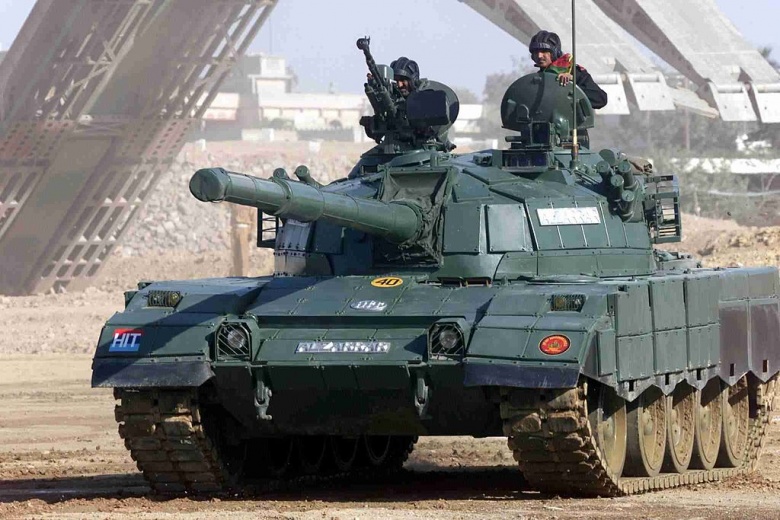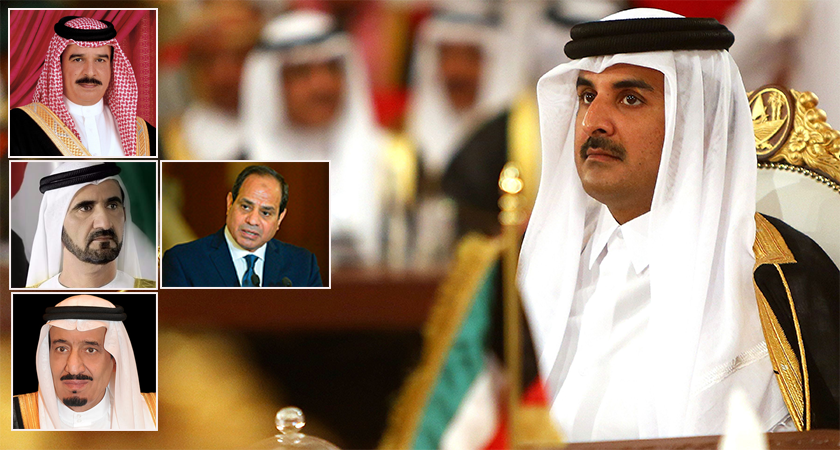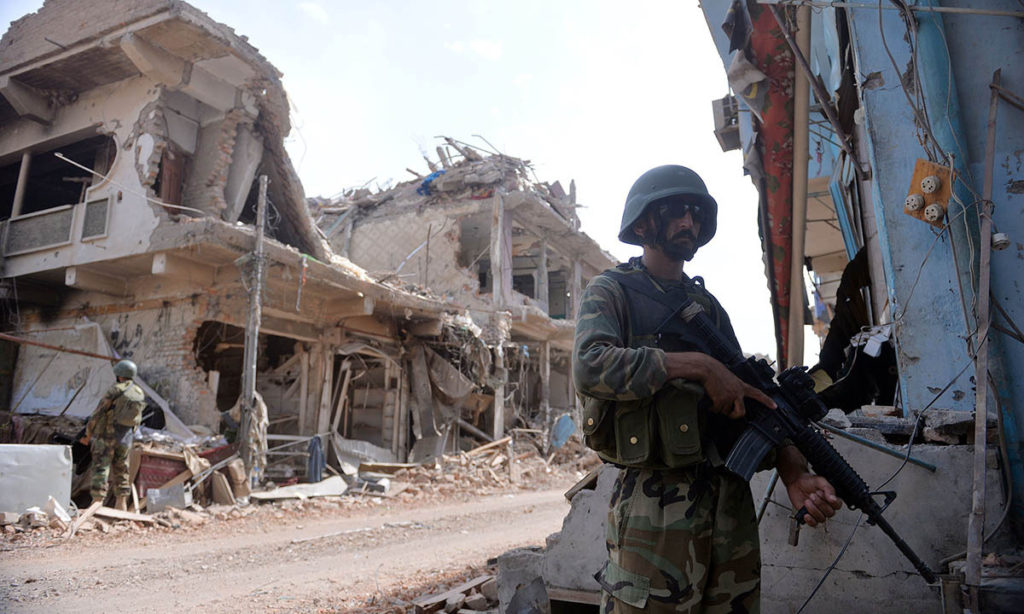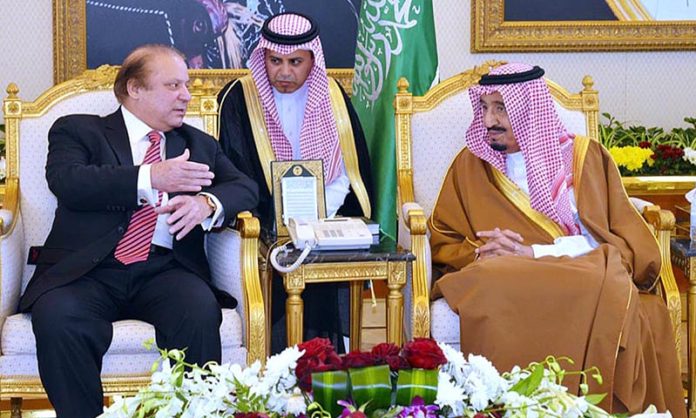Historical Overview
Pakistan’s strategic location, its predominant religious affinity, critical geographical proximity as well as continuous efforts by Pakistani expatriate population to develop infrastructure and other institutions have made it a natural ally of the neighboring Gulf States. There are socio-political factors that make Pakistan the obvious choice for the Gulf rulers to safeguard security of their countries, defend territorial integrity and promote their economic well-being on long term basis. Amongst these Gulf Cooperation Council (GCC) countries, Saudi Arabia and UAE traditionally have the closest relations with Pakistan in all spheres of interests. In terms of strategic ties, Pakistan acts as a strategic balancer in the Iranian context. Gulf States look towards Pakistan to contain Iranian hegemony up to a limit. Also, China needs Pakistan because Pakistan’s influence in GCC can provide it transit trade route for western Xingjian region that will be an energy corridor to import oil from the Gulf region, naval facilities on the Arabian Sea coast to protect its energy supply lanes from the Middle East.
Specifically, when it comes to military relations, Pakistan maintains close military ties with all Gulf States, especially Saudi Arabia, UAE, Oman and Bahrain. Pakistan provides extensive support, arms and training for the military establishments of these countries. Pakistan helped Kuwait in its freedom war in 1991 against Iraq. The defence cooperation between Bahrain and Pakistan is very strong; Pakistan had been collaborating since long in their defense sectors, particularly air and naval forces along with procurement of defense related equipment. UAE has benefited from Pakistan’s military process since 1968 and its air force had Pakistani air force officers as Chiefs of air staff on many occasions.
Over the past few decades, Pakistan has also improved its relations with the State of Qatar. The relations started with late president Zia-ul-Haq when he visited Qatar in mid 80s and an era of cooperation was initiated in many fields of interests including economic, and defence sectors. Pakistan and Qatar signed a defence pact in May 2010 where several agreements were signed for purchase of arms and ammunitions, military training and defence related MOUs. Moreover, a deal was signed by the two countries in December 2015 in which Qatar agreed to supply Pakistan with $16 billion of LNG over a lengthy period. There are about 150K Pakistanis living in Qatar, working in various sectors. More than 4 million Pakistanis live and work in the GCC states, they are contributing to the economy of the Gulf countries and Pakistani government is heavily relying on foreign exchange sent by them through remittances.
For the Gulf States, containment of the Iranian influence in neighboring Muslim countries is an area of greater interest and it compels them to develop closer relations with Pakistan. Post Afghan Soviet war and recently US led war in Afghanistan against Taliban has made Pakistan a frontline state. The Gulf countries have their own interests in the region due to growing Chinese influence, Iran’s nuclear ambition, terrorism in Afghanistan, and the expanding cheap labor market of India. Economic interests and Security are the core objectives of the Gulf countries in the region. Pakistan’s role in the war against terrorism and its strategic location will continue to gain attention and remain in focus for all Gulf countries specifically considering China-Pakistan Economic Corridor (CPEC) and development of Gwadar Port in the Arabian Sea.

Pakistan’s Challenges
1. Yemen War
The Saudi-led coalition of ten Arab States began an aerial bombing campaign against Houthi rebels who were supported by Iran. During the course of conflict, Pakistan, a key Saudi ally was missing from the coalition. After a week of heavy debate, Pakistan’s Parliament unanimously passed a resolution on April 10 declaring that the country would remain “neutral” in the Yemen conflict, signifying a sharp break between the two long-time partners. Pakistan’s decision not to join the Saudi-led intervention in Yemen signaled that a coolness in relations between Islamabad and Arab States was likely to emerge, however Pakistan managed to convince the Saudis regarding border and internal difficulties but supported them with arms and ammunitions and other logistic support.
Although Pakistan has benefited enormously from Saudi support in the form of subsidized oil and cash infusions during times of need, the resolution calling for neutrality passed by Pakistan’s parliament, while far from signaling a complete shift away from its longtime patron, is a sign that Islamabad is responding to an evolving strategic landscape. This strategic landscape consists of the non-interference policy of Pakistan amongst neighboring Arab states in specific and Muslim related matters in general. Pakistan’s tilt will always be towards Saudis and Arabs under this landscape due to the holy places in Saudi Arabia along with huge community of expatriate Pakistanis living in Gulf States, however, Pakistan will not be part of any military assault on any other Muslim country rather it will mediate to resolve the crisis. This policy has the back up from the parliamentary resolution and will reflect strategic modification towards Islamabad’s policy paradigm for Gulf States.
2. The Saudi Led Military Alliance (IMA)
Islamic Military Counter Terrorism Coalition is an intergovernmental alliance meant to counter terrorist activities in the Muslim world, specifically military intervention against ISIL/ISIS. The alliance will have a joint operations center in Riyadh. On 6 January 2017, Pakistan’s former Chief of Army Staff, General (Retd.) Raheel Sharif was named the IMA’s first Commander-in-Chief. Pakistan faced internal political pressure during appointment of General Raheel as chief of this military alliance due to growing criticism regarding intentions and role of this alliance. Due to the dominance of the alliance by states having majority Sunni Muslim populations, it was seen as “a sectarian coalition” by some non-participant countries like Iraq, Iran and Syria. Pakistan’s position is clear since ex-Army General is serving the alliance in his personal capacity. The critical point here is that this alliance must not be used against any other Muslim country rather it be focused on anti ISIS/ISIL activities and other potential terrorist threats.
3- Strategic Re-positioning
The Middle East is an oil rich market with historic affinity with Pakistan in all forms, from defence pacts, training personnel, restructuring national carriers, local infrastructure development, arms & ammunitions to banking sector development. However, with passage of time there are other players in the field challenging the status that Pakistan enjoyed with Arab States. The economic ties and labor force recruitment has tremendously increased with other countries like Philippines, India, Nepal, Sri Lanka and Bangladesh. Some Middle East countries have shown reservations towards Pakistan for not participating in the Yemen war and practically showed their inclination towards those countries considered rival to Pakistan, mainly India. Pakistan has to reshape its strategy to counter this situation and revert the status back in its favor. Arab countries cannot afford to damage relations with Pakistan and room for better coordination will always be present, so it is a diplomatic challenge for Pakistan to keep the Middle East under control by finding ways to undermine Indian influence. India’s foreign policy in the Middle East revolves around utilizing its cheap manpower as well as economy and its ambitions to be regional player to contain China which is perceived to be a major obstacle to Indian policy makers. India has been challenged by Chinese influence dramatically in every field and in South, central and West Asia or Middle East establishing major infrastructure in the countries that are located around India. Although the Indians are under the impression that cheap manpower is key to getting a strong foothold in the Middle east but a counter comment could be raised that manpower can’t be utilized as major policy shift factor rather it is more like “need to have” basis relations with host ME countries. This is a win-win situation regarding Remittances Vs Cheap manpower for both Host and Guest.
Moreover, there are more delicateness/ sensitivities in the Middle East from country to country, and India is offering without messing with those sensitivities, an example is to maintain a balance between Iran and Saudi Arabia and further relations with Israel while maintaining relations with the Arab world as well. As far as Indians are concerned, there is no emotional religious and cultural bond with ME states, for instance the Iran example when India withdrew its support on the nuclear issue.
The main economic point India sells to the Middle East is its cheap labor and cheap products. The Indians assure ME leadership that their work force would work at very economical or cheap rates without any argument. Also, they play around the rivalries among two countries to fulfill their objective, the Israel-Arab conflicts is an example in this case. This policy and approach may get the Indians some economical advantages but this is not a strategic advantage by all means. There are certain gaps that Pakistan must fill as a counter diplomatic strategy and if Pakistan does not engage in aggressive diplomacy, the Indians will get an edge here.

4- Qatar Diplomatic Crisis 2017
On 5th June 2017, five Arab countries Saudi Arabia, Egypt, Yemen, UAE and Bahrain cut ties with Qatar. The severing of relations included withdrawing ambassadors, and imposing trade and travel bans and closure of air space for carriers flying to and from Qatar. All land based trade involving food supplies were stopped. This was a tough situation for Pakistan due to its close relations with both Qatar and the Saudi/ UAE alliance. Pakistan has maintained a neutral position considering its Parliament’s resolution that suggests the government to act neutral and help resolve issues between brotherly countries. It is in Pakistan’s interest to enforce this resolution no matter how much diplomatic pressure is exerted to act against Qatar. Pakistan should increase food supplies to Qatar during this crisis. Pakistani PM visited Saudi Arabia with a high level military and civil delegation to help resolve the crisis, however, other high level officials from Pakistan should also visit Qatar, Bahrain, UAE, Kuwait and Turkey.
The challenge for Pakistan in this diplomatic crisis is delicate and sensitive. Pakistan has historic ties with both sides including military and economic sectors. Pakistan has signed a long-term LNG deal with Qatar that is critical to overcome power shortages in Pakistan. Pakistan has traditional brotherly and warm relations with Turkey without any barriers and Pakistan has a 909 km long land border with Iran. So, the best diplomatic move is to consult with the leadership of said countries and pave ground for peaceful resolution. The sensitivity of the matter dictates to use the Parliament resolution as a guideline while interacting with said countries because this resolution will protect Pakistan’s interest better than any other move on the subject.
Pakistan has to make clear to Arab states that its policy tilt will always be towards the Arabs due to holy sites along with huge expatriate Pakistanis and that Pakistan will always play its role if there is any foreign aggression against Saudi Arabia and rest of the Arab states, however Pakistan will not be part of any military or diplomatic assault on any other Muslim country. Similarly, Pakistan must make clear to Iran that Pakistan has maintained a delicate stance dealing with Arabs by not participating in any assault on any other Muslim country and this must be appreciated because some Arab rulers have shown inclination towards a country that is rival to Pakistan. Iran must feel confident that Pakistan will not go in conflict mode with Iran due to land border and being a brotherly Muslim country. In return, Iran will not let its soil be used against Pakistan by any rival country and its intelligence operatives rather the focus should be on mutual trade.
Pakistan should increase military and economic ties with all ME and Gulf States including increase in food supplies to Qatar during this diplomatic crisis and must support the mediation initiative taken by Kuwait. In addition, there are certain measures that Pakistan can adopt to boost trade, defence and economic ties with Qatar during this regional rift situation. Some key areas are outlined below.

1. Anti-terror techniques learnt during Zarb-e-Azb. Due to changing regional and global paradigm, it is worth offering ‘lessons learnt and achievements’ during war on terror. Special team of experts from the Pakistan army can lay out a plan to coach Qatar military on this subject.
2. R&D in defence field (Joint aircraft manufacturing like K8 & Mashak). Explore other areas with Qatari counter parts where joint military manufacturing could be possible. Pakistan should help Qatar for being independent in security related matters.
3. Conduct CPEC conference in Doha to attract Qatar business community for investment in CPEC.
4. Elaborate to Qatar for having direct road access to China & Central Asian states. Doha to Gwadar strategic belt and further investing along CPEC routes within Special Economic Zones (SEZ). Qatar must be the part of road & belt vision. Since Qatar has its dependency on Persian Arabian Gulf and criticality due to Strait of Hormouz, Pakistan should assure Qatar for land access to China and Central Asia. This will open many economical & strategic avenues.
5. Disaster management support to Qatar. Qatar infrastructure is not designed primarily to handle any sudden natural emergencies like Pakistan has experienced in 2005 quake, Qatar is really keen to develop expertise in disaster management. Pakistan DMA should interact with Qatar authorities for laying out a plan accordingly.
6. Qatar is interested in developing local food & agriculture products to meet vision 2030 goals. Pakistan should help Qatar in developing agriculture development In Qatar by exchanging experts, conducting seminars and form joint task force to execute this goal.
7. Skilled experts from Pakistan to support Qatar industrialization vision.
8. Visa on arrival for Pakistan citizens. Pakistan MOI should lay out modalities how to achieve this goal by interacting with Qatar MOI. Pakistan being part of 39 nation alliance should pursue for this facility in all GCC countries.
9. Presence of Pakistan navy in Persian/ Arabian gulf specially Bahrain and Qatar for training and joint military exercises. It might be worth setting up a GCC naval alliance including Pakistan and Turkish navy to safe guard regional maritime interests. It could be further extended.
10. Qatar is hosting the 2022 Football World Cup. It would need help in many areas including sports goods, construction projects, security and man power, etc. Interact with Qatar authorities how Pakistan can help in this event. Pakistan MOC to act on it.
11. Convince Qatar banking sector to open branches in Pakistan cities and vice versa to facilitate remittances. Pakistan ministry of commerce to act aggressively on it for having MOU.
12. Pakistan ministry of commerce to be active and interact with Qatar officials to import more textile and consumable products from Pakistan. This will get lots of benefits for Pakistan. The trade volume must increase sharply. Aggressive operational committee from MOC of Pakistan should act on this goal to get max benefit.
The economic blockade of Qatar by the Saudi-led six Arab nations does not seem to have significant impact on daily Qatari life, rather it has provided an opportunity to the Qatar government and nation to be more resilient and develop plans to be self-sufficient quickly. This economic blockade seems to have far deep impact on Qatar’s preferences and priorities in many fields, mainly foreign policy and Qatar is expediting the policies and measures to be self-reliant in coming future.




